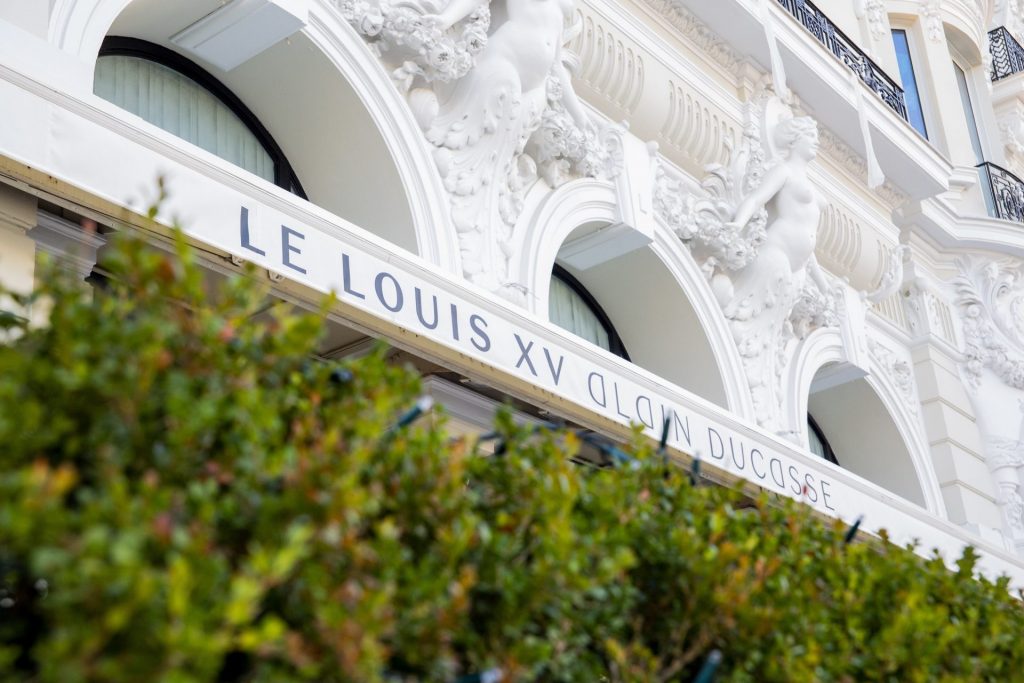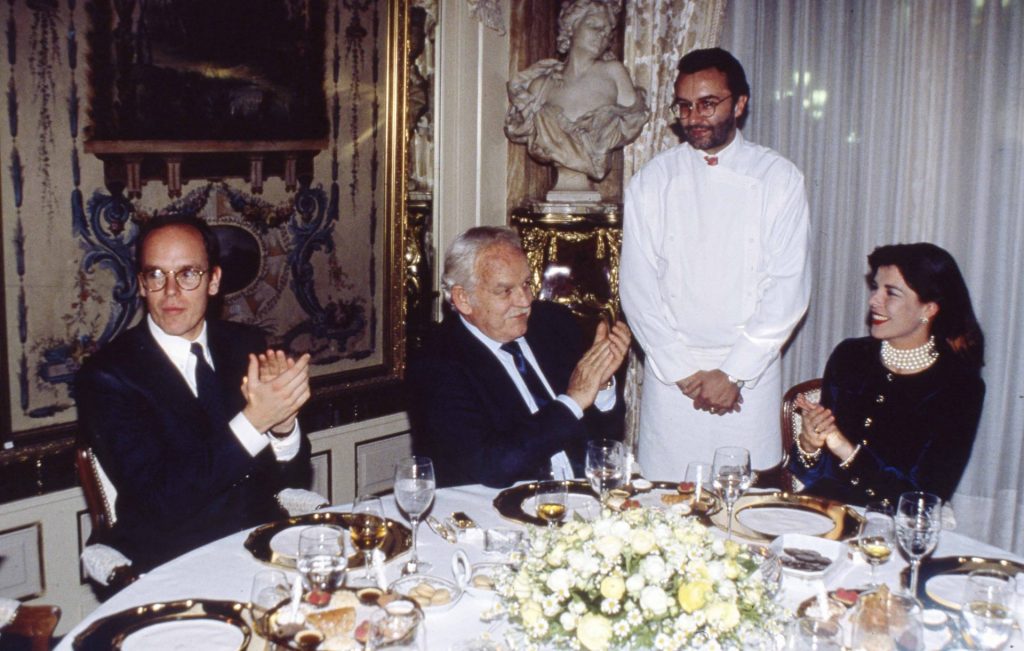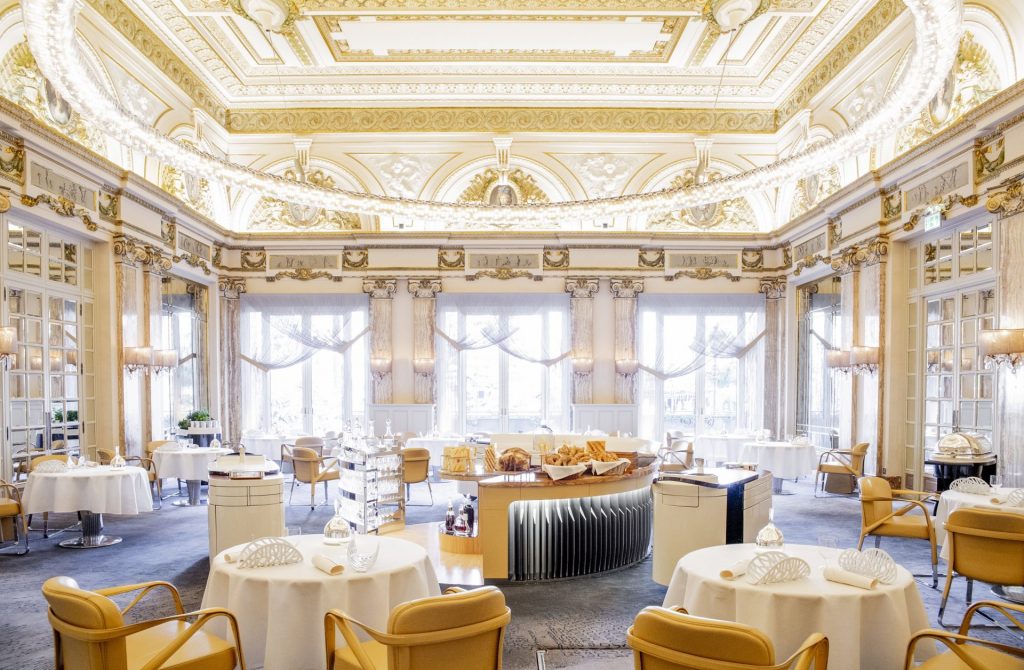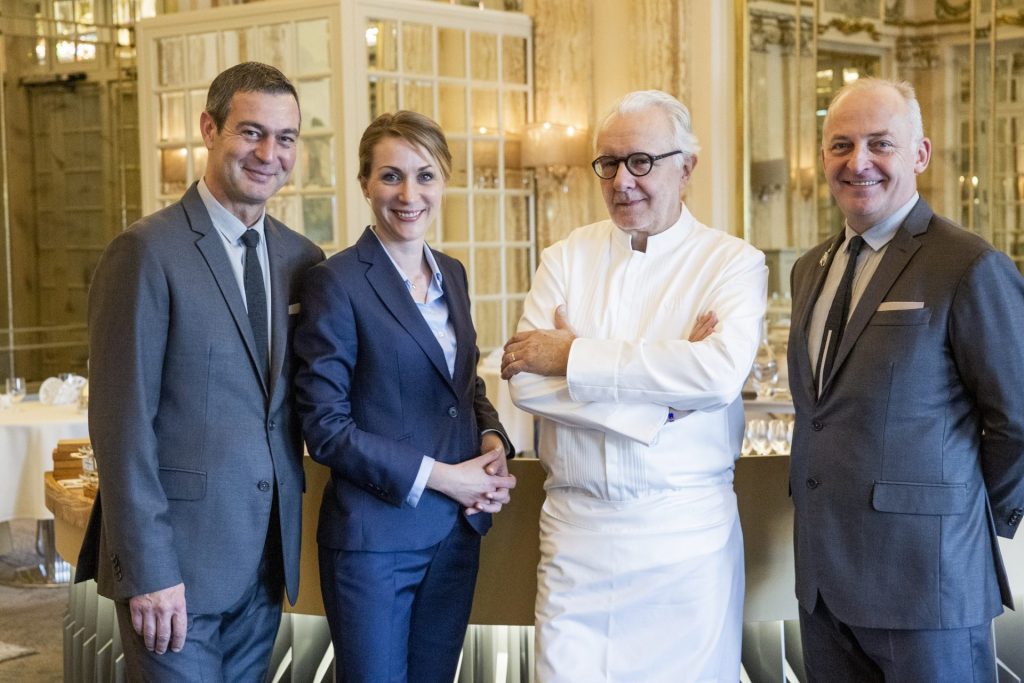Alain Ducasse is a French-born Monegasque chef, and arguably one of the most iconic restaurateurs in the world. Above all, Alain Ducasse sees himself as an esthete, creator and an artisan of eating and living well. In 2005, Alain Ducasse became the first chef to have 3 restaurants awarded with 3 Michelin stars at the same time, among them, the famous Le Louis XV – Alain Ducasse à l’Hôtel de Paris.
Following the reopening of Hôtel de Paris Monte-Carlo, Le Louis XV by Alain Ducasse has also been elevated with a new look. Meanwhile, a new dining concept – ÔMER – was created under the careful eyes of Alain Ducasse himself.
In this exclusive interview with the famous chef creator, we find out more about Alain Ducasse’s relationship with Monaco and his new ventures in the Principality and abroad.

Your role as a prominent public figure attached to Monaco continues to grow. How does the Principality feed this affection that you have for it?
I owe a huge debt towards the Principality of Monaco. The confidence that HSH Prince Rainier III granted me in 1987 by entrusting me with the kitchens of Le Louis XV, the restaurant of Hôtel de Paris Monte-Carlo, was simply the most important professional event of my life. This confidence has been renewed by his son, HSH Prince Albert II, with whom I also have a lot of conversations about sustainable development, a theme dear to both of us. I have been a Monegasque citizen since 2008, very proud and very happy to be so.

A younger Alain Ducasse with the Royal Family of Monaco in the 1980ies
What are your latest developments in Monaco?
The very latest one is the opening of the ÔMER restaurant. It is located in the rotunda wing of the Hôtel de Paris Monte-Carlo and there, we propose a journey through the Eastern Mediterranean cuisines. This is an idea to which I am very attached: in Monaco, we are at the heart of the Riviera. We are therefore part of this great area of the Mediterranean Basin which, for a few millennia, has been a unique cultural unit, a place of exchange always, of clashes at times. Within the Mediterranean region, cuisines take on various nuances and distinctions, but they all share a necessary frugality and an immense sense of generosity.
At ÔMER, I take the guest on a journey through all these cuisines. We recently organized a culinary sojourn in Greece by inviting a wonderful Greek cook, Dina Nikolaou, to ÔMER. There will be other stops – by other invited cooks – for our guests to discover other flavors and other fragrances of these wonderful Mediterranean cuisines.

You were one of the first world-renowned chefs to advocate for the use of local produce and a more balanced, plant-based diet. Do you think that your efforts are now rewarded in Monaco and around the world?
I implement this in several ways. First by proving that one can make haute cuisine that is at the same time a healthier cuisine. This is the concept of “naturality” that I develop in my restaurant at the Plaza Athénée, in Paris: a cuisine based on vegetables, fruits, cereals and fish from sustainable fishing. The second pillar is about everyday cooking. I have published several books of a series called “Nature” which offer tasty and very healthy savory and sweet recipes that are easy to execute at home. A third pillar concerns the profession in the broad sense.
Thus, I created, with the late Joël Robuchon, the Culinary College of France. It is a meeting place for restaurant owners and producers to promote a cuisine based on the produce. The best reward I can expect from all these efforts is an awareness from the general public: if someone stops buying strawberries in winter, if someone avoids eating too much fat, too much salt, too much sugar, if someone decides to eat a little less meat but a meat of good quality coming from farms with ethical practices, then yes, all these efforts will have been useful.
Can you tell us more about your new venture in Singapore?
We have opened an establishment in the iconic Raffles Hotel Singapore. This hotel needs no introduction: it has been one of the most beautiful hotels in the world for over a hundred years. Everything is beautiful there, from the colonial architecture to the lush gardens and the exceptional furniture. We are at what was called the Bar & Billiard Room of the Raffles Hotel, simply renamed BBR. This space has a soul: it has always been an elegant gathering place for Singaporeans, expatriates and visitors. We offer cuisine from the Latin Mediterranean, that is to say the shores of Italy, France and Spain, with some incursions into Portugal. A very beautiful and very tasty way to get away from it all!

How do you see the future of French haute cuisine in a more globalised environment?
I would answer by giving you examples: Jessica Préalpato, the head pastry chef of the Alain Ducasse restaurant at the Plaza Athénée in Paris, has just been named Best Pastry Chef in the World by the World 50 Best Restaurants. The previous winner was Cédric Grolet, the pastry chef of my restaurant at Hôtel Le Meurice, also in Paris. Before them, the other two winners were also French. This is not a bad achievement, right?
You may tell me that pastry has always been a great French specialty and that the situation of the cuisine is different. Certainly. However, here again, two examples: Gastón Acurio recently celebrated the 25th anniversary of his restaurant Astrid & Gastón in Lima – Peru. Gastón is a remarkable man who literally invented the “new Andean cuisine”, he explored the Peruvian terroir as nobody had done before him and he has revived the culinary traditions of his country. Where did he learn to cook? In France. Also look at Massimo Bottura, whose Osteria Francescana, in Modena, was voted Best Restaurant in the World in 2016. Where did he learn to cook? Particularly with us in Monaco, at Le Louis XV – Alain Ducasse!
French cuisine remains the best school in the world. It provides the technical base from which cooks from around the world go on inventing their own cuisine. French cuisine is obviously no longer the only great cuisine in the world, but the same can be said of many things: cinema is no longer just American, or cricket is no longer just British…
We went from reverence to reference: French cuisine has ceased to be an intimidating monument and has become a landmark for anyone who wants to create the cuisine of today.
